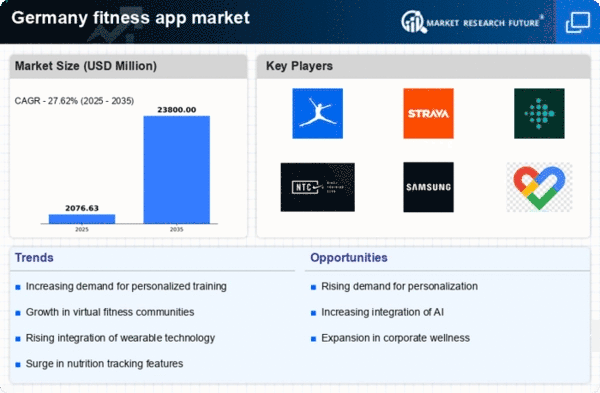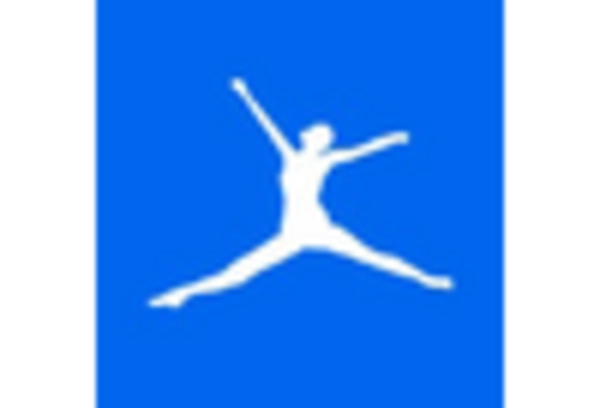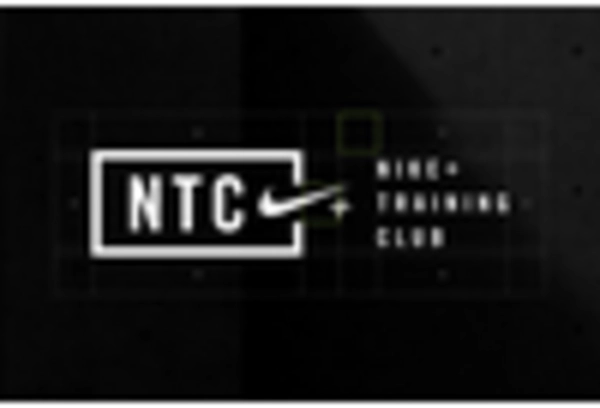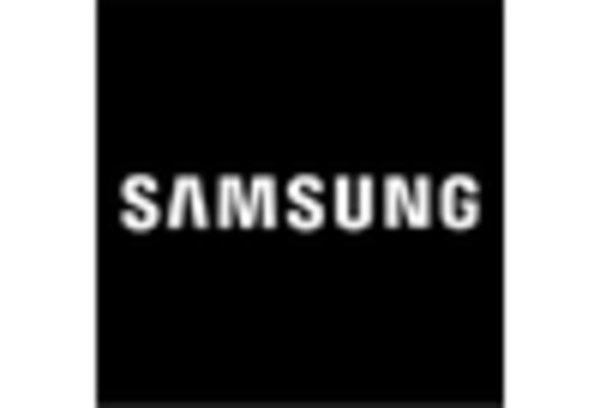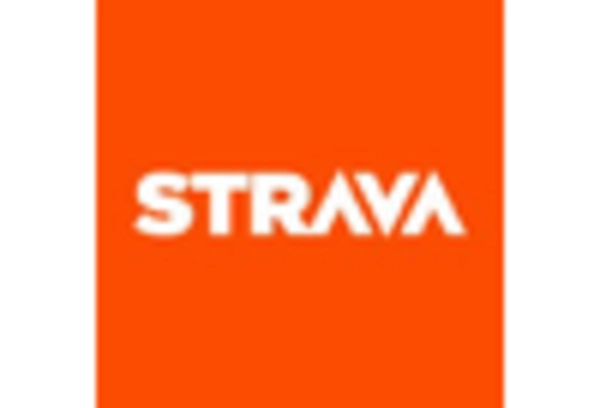Rising Health Consciousness
The fitness app market in Germany is experiencing a notable surge due to increasing health consciousness among the population. As individuals become more aware of the importance of physical fitness and mental well-being, the demand for fitness applications has escalated. Recent surveys indicate that approximately 60% of Germans actively seek digital solutions to enhance their health and fitness routines. This trend is likely to continue, as more people prioritize their health, leading to a robust growth trajectory for the fitness app market. Furthermore, the integration of health tracking features within these applications aligns with the growing desire for personalized health management, thereby driving user engagement and retention.
Increased Smartphone Penetration
The proliferation of smartphones in Germany has significantly impacted the fitness app market. With over 80% of the population owning a smartphone, the accessibility of fitness applications has never been greater. This widespread adoption facilitates the integration of fitness tracking and health monitoring features directly into users' daily lives. As a result, the fitness app market is poised for growth, as more individuals turn to their mobile devices for fitness solutions. Moreover, the convenience of having fitness resources at one's fingertips encourages regular engagement with these applications, further solidifying their role in the health and wellness landscape.
Focus on Mental Health and Wellness
The fitness app market in Germany is increasingly aligning with the growing emphasis on mental health and wellness. As individuals recognize the interconnectedness of physical fitness and mental well-being, applications that incorporate mindfulness and stress management features are gaining traction. Approximately 30% of fitness app users in Germany express interest in apps that offer mental health resources alongside physical fitness programs. This trend suggests a potential expansion of the fitness app market, as developers integrate holistic approaches to health. By addressing both physical and mental wellness, fitness apps can attract a broader audience, thereby enhancing their relevance in the competitive landscape.
Technological Advancements in App Development
Technological advancements play a crucial role in shaping the fitness app market in Germany. The emergence of artificial intelligence (AI) and machine learning (ML) has enabled developers to create more sophisticated applications that offer personalized workout plans and nutrition advice. As of November 2025, it is estimated that around 45% of fitness apps utilize AI-driven features to enhance user experience. This innovation not only attracts new users but also retains existing ones by providing tailored solutions that meet individual fitness goals. Consequently, the fitness app market is likely to expand as developers continue to leverage these technologies to improve functionality and user satisfaction.
Growing Popularity of Virtual Fitness Solutions
The fitness app market in Germany is witnessing a shift towards virtual fitness solutions, driven by changing consumer preferences. As more individuals seek flexible workout options, the demand for virtual classes and training sessions has surged. Recent data suggests that approximately 50% of fitness app users in Germany prefer virtual workouts over traditional gym sessions. This trend indicates a potential for growth in the fitness app market, as developers increasingly focus on creating engaging virtual experiences. By offering diverse workout formats, such as live-streamed classes and on-demand sessions, fitness apps can cater to the evolving needs of users, thereby enhancing their market presence.


